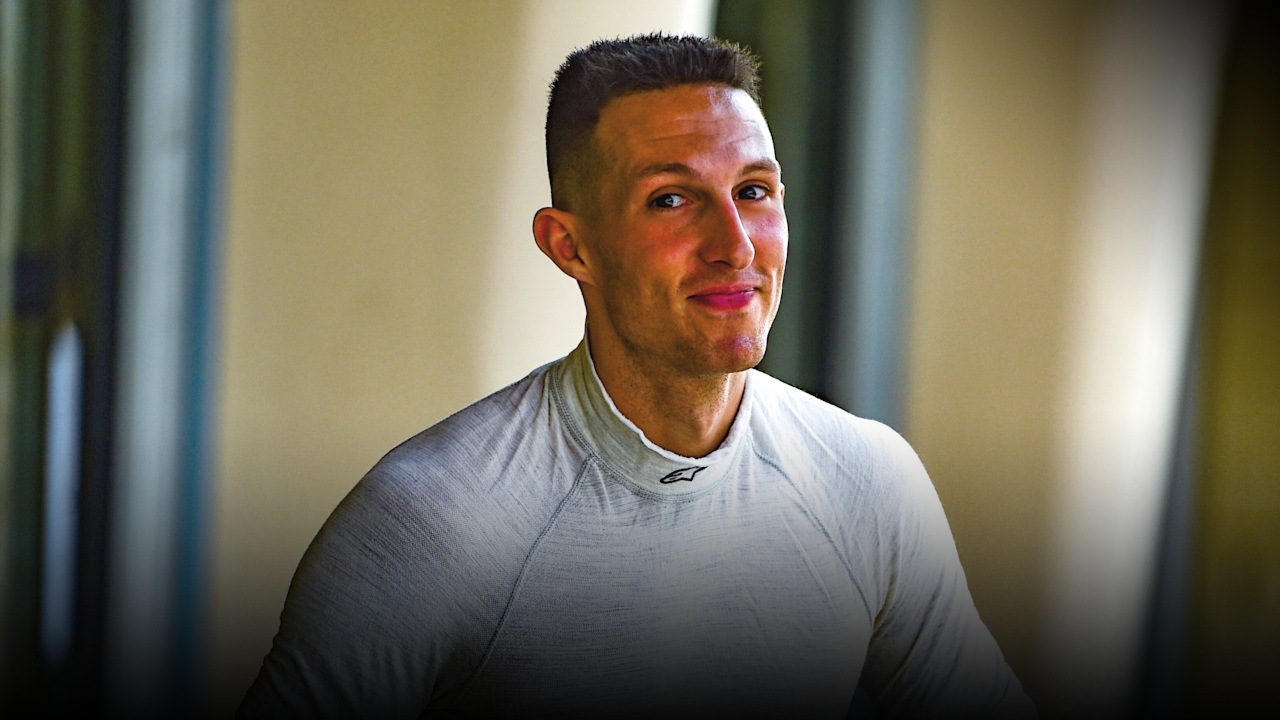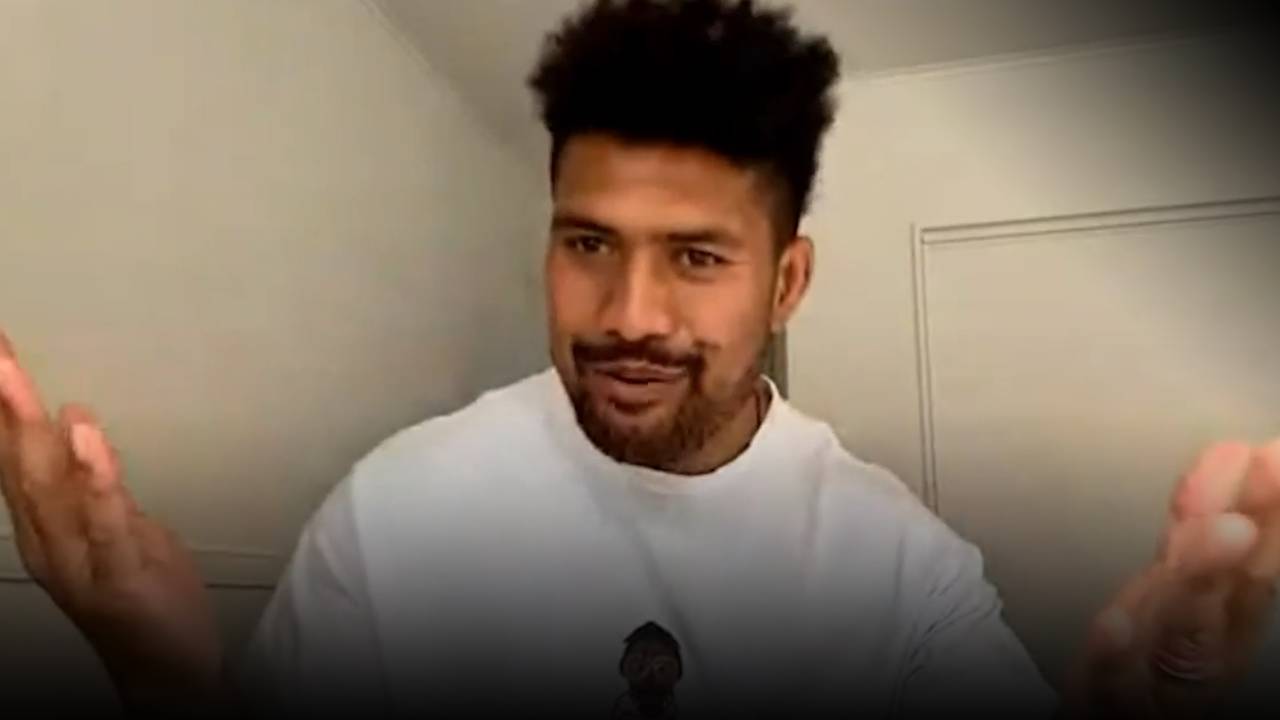Rugby
‘Who is this redneck?’
If you can stay on top of a bucking bronc for eight seconds, that counts as a ride.
I’ve ridden two broncs in my life and survived the eight seconds both times, so I figure if I retire now I’m going out with a 100 per cent success rate.
The last one was around the time I signed my first professional rugby contract with the Western Force. I got signed in late 2016 and there was a rodeo on New Year’s Eve that my mates were going to and I really wanted to get around it.
Some of my close friends growing up were right into rodeo but I mostly focused on playing union and league for local teams. However, I’d always wanted to try my hand at riding broncs. Growing up breaking in and riding young horses, I figured it couldn’t be too much harder.
Maybe if I wasn’t playing rugby, that’s the road I would have gone down. So at the end of 2016 I took the opportunity to get my cowboying out of the way that year before focusing on building a career in rugby.
It probably wasn’t the smartest thing, putting a video of the ride on Instagram.
Considering I was new to the Force, the boys were probably thinking, ‘Who is this crazy redneck?’. Anyway, it’s up there now and it won’t be getting deleted.
My first bronc lost its feet at the end of my ride and fell to its side. I got away, no worries, which was probably a bit of beginner’s luck, but I think mum is happy I hung up my spurs after one weekend.
I’ve figured that riding broncs is a fair bit scarier than playing Super Rugby. I’ve gotten used to playing games against 130kg, big units but the uncontrollable nature of riding broncs takes the fear factor to another level.

A classic Australian sport
Horses have been around our family for as long as I can remember. I was brought up on a cattle property in Glen Innes, a country town in northern New South Wales, seven-and-a-half hours’ drive north of Sydney.
My dad’s dad bought the place when he was young and settled there with my grandmother. When my grandfather died in 2007 we were living on another property nearby and eventually took over the family farm.
Growing up there was a lot of work to be done, but there was plenty of fun as well. School holidays would be spent riding horses and chasing cattle amongst a bit of other mischief around the place.
Our main family hobby is a horse sport called campdrafting. A classic Australian sport that originated from drovers and bushmen in the Australian outback, campdrafting is a common pastime for many Australians, which complements their day-to-day lives on the land.
It is scored out of 100 points, and you have to show a judge that you could separate one beast from the mob and then take it around a figure of eight course, a test of your abilities as a horseman and cattleman.
It’s been something my family has done for as long as I can remember and, up where I live, it’s a common horse sport. After working hard during the week, heading off to a campdraft on the weekend provides a social life and the ability to catch up with mates as well as a fun competitive outlet for many people.

Nearly every showground around the country will have a camp yard attached to the ring demonstrating the sport’s popularity to many communities.
It was a great upbringing around horses and cattle while playing both league and union through the winter months.
I was sent away to Sydney, to boarding school in year 7 which was an experience that I loved. It was definitely hard at the start coming from the bush, but mum and dad always laugh that they’d come down to see me and take me out for the weekend and all I’d want to do was go back to boarding school so I could play with my mates.
As dry as I’ve seen it
Nowadays, it’s still such a relaxing feeling going home and seeing all the people and the environment that I grew up around.
After travelling across the globe playing Super Rugby, it is tough to go home and see how the drought is affecting a lot of the locals. They work so hard to make ends meet, and have such great love of what they do, which gives you enormous respect for the people and the land and how resilient they are.
The drought is obviously widespread and my hometown is no different. I spent a bit of time there a few months ago after having shoulder surgery and it was as dry as I’ve seen it. A lot of blokes much older than me are saying the same thing.
I often fly from Sydney to Armidale, which is my nearest airport. New England is quite a productive, high rainfall area that typically looks nice and green from the sky. Anyone flying in there now would see noticeable change in the shade of the land. The vastness of the dry brown land is something that hit home for me.
Mum and dad are going well at home. Like many others, they are hand-feeding nearly every day so that adds a lot of work on top of their usual commitments. Dad’s a stock agent, so he buys and sells livestock for his clients as well as running our farm. So he’s got to find time outside of his day job to be able to feed all the stock, which is draining.
A lot of farmers are facing that; spending their spare time feeding stock that they would usually dedicate to a hobby, catching up with friends at the pub, etc. This often means long days for people with stress relief hard to come by.
More about: Drought | Mental health | Super Rugby | Wallabies | Waratahs | Western Force






 Load More
Load More